All Spanish Courses
- Language and Culture
- Introduction to Literary Theory
- Interdisciplinary Study of Literature and Culture
- Cinema
- Visual Arts
- Religion
Language and Culture
SPAN 111 Beginning Spanish I
One unit semester course. In this language course, students will develop essential listening, speaking, reading, and writing skills in Spanish. Spanish grammar instruction is supplemented with study of cultural materials from Spanish-speaking countries. Conference.
SPAN 112 Beginning Spanish II
One unit semester course. This language course continues the development of essential listening, speaking, reading, and writing skills begun in Spanish 111. Students will learn enough language to handle a meaningful conversation, read short literary texts, and speak and write about their experiences, thoughts, and opinions. Spanish grammar instruction is supplemented with study of cultural materials from Spanish-speaking countries Pre-requisite: Spanish 111 or placement by examination. Conference.
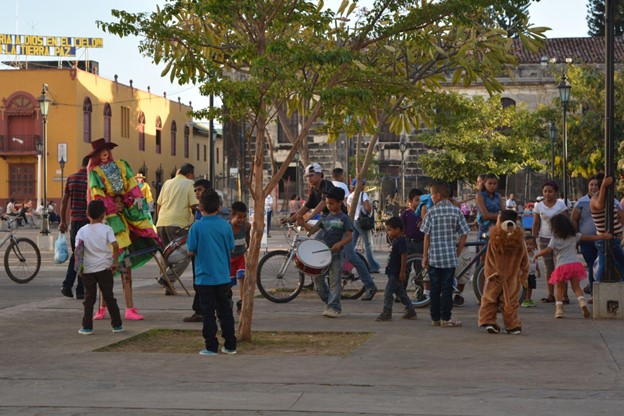
SPAN 211 Intermediate Spanish I
One unit semester course. In this language course, students will develop essential listening, speaking, reading, and writing skills in Spanish. Spanish grammar instruction is supplemented with study of cultural materials from Spanish-speaking countries. Conference.
SPAN 212 Intermediate Spanish II
One unit semester course. The primary goal for this course is to increase students’ fluency in both spoken and written Spanish. The course continues the systematic review of Spanish grammar begun in Spanish 211, yet places more emphasis on the spoken and written analysis of literary and cultural texts from the Spanish-speaking world. Students who complete Spanish 212 will acquire the necessary fluency to take advanced literature or film classes in Spanish, or to study abroad in a Spanish-speaking country. Pre-requisite: Spanish 211 or placement by examination. Conference.
SPAN 311 Advanced Language and Culture: Spanish Cinema
在
SPAN 312 Advanced Language and Culture: Speculative Fiction
在

SPAN 312 Advanced Language and Culture: The Spanish Civil War.
This advanced study of Spanish language and culture takes as its thematic focus a study of the cultural and artistic production concerning the Spanish Civil War (1936-1939), a tragedy that began a period of extreme violence in which more than one million Spaniards were killed and that resulted in the dictatorship of Francisco Franco, lasting until Franco’s death in 1975. Characterized by the Historian Helen Graham as “a war of culture,” the Spanish Civil War is the subject of a great number of cultural works as the two sides attempted to justify and motivate their cause through the production of art and through other modes of communication. This course studies the war through a focus on this cultural production, from the propaganda we find in posters produced during the war, to speeches given by Franco at its end, and literary works published by authors in exile. Prerequisite: Spanish 212, equivalent with the consent of instructor or placement by examination. Conference.
SPAN 312 Advanced Language and Culture: Spanish Migrations
在
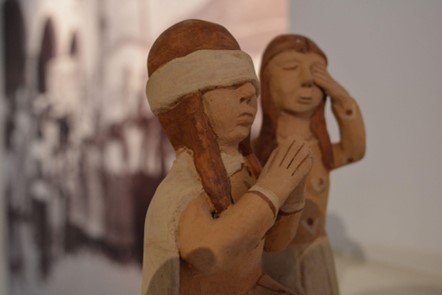
SPAN 312 Advanced Language and Culture: Representations of Childhood in Hispanic Literature and Cinema
One unit semester course. This is an advanced Spanish course that takes up and deepens the study of important grammatical and stylistic categories within a specific thematic framework. A corpus of stories and two films, one Latin American and the other Spanish, whose plot revolves around childhood, will allow addressing different sociocultural and political issues. The children's imaginary will open a different perspective on issues such as racial discrimination, poverty, political violence and gender inequalities, among others. Within this broad thematic framework, the student will be able to exercise and develop both oral and written expression. Prerequisite: Spanish 212, equivalent with the consent of instructor or placement by examination. Conference.
Introduction to Literary Theory
SPAN 321 Theory and Practice of Hispanic Literature
One unit semester course. This course is designed to give students a theoretical, historical, and cultural framework for the more advanced study of Spanish and Spanish American literature. It will include considerations of genre, reception, and critical theory. Students will be responsible for undertaking close readings of the texts as well as research projects. Prerequisite: Spanish 212, equivalent with the consent of instructor or placement by examination. Conference.
Interdisciplinary Study of Literature and Culture
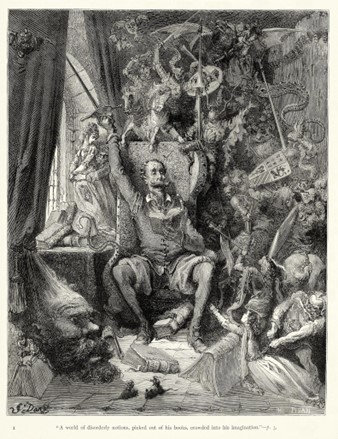
SPAN 343 Don Quixote and Narrative Theory
在
SPAN 361 Decentering the Human
在
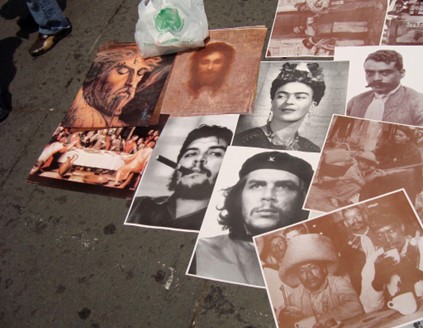
SPAN 365 Literature, State, and Nation in Nineteenth-Century Latin America
在
SPAN 366 Federico García Lorca: Theater and Poetry
在
SPAN 368 Jorge Luis Borges: Fiction and Criticism
One unit semester course. This course studies the writings of one of the most important authors of the twentieth century through various critical approaches that have been applied to his work: structuralism, poststructuralism, psychoanalysis, hermeneutics, and sociocriticism. Emerging from this corpus are two opposing views: one that associates Borges with the Argentinean literary system, foregrounding his participation in national aesthetic and cultural debates, and one that emphasizes the cosmopolitanism, skepticism, and sense of unreality marking his literature.
Also considered will be emerging critical studies that accentuate the historical and political relevance of Borges’s oeuvre. Along with these lines of inquiry, a series of theoretical categories and themes that are key for the comprehension of Borges’s writing will be discussed: avant-garde ultraism; criollismo; metaphor and metonymy; Argentinean tradition; reading, misreading, and translation; authorship and figures of the author; canon and literary genealogy; history, memory, and forgetting. Prerequisite: Spanish 321 or consent of the instructor. Conference.
SPAN 370: Peninsular Modernism: Between Empire and Fascism.
在
SPAN 377 Art after Dictatorship: Post-Franco Literature and Culture
One unit semester course. What happens to a culture when released from systematized repression? This course examines the creative explosion in literature and film produced in Spain after 1975, the year in which Francisco Franco died and his totalitarian regime ended.
Conference discussion will concern transformations that characterize the post-Franco era: the recuperation (or not) of historical memory, the emergence of a fluid conception of gender, and the creation of new forms of popular art. Particular attention will be given to the “movida,” the disruptive social and cultural transformations celebrated in the films of Pedro Almodóvar and others. Films and readings will include works by Almodóvar, Ventura Pons, Carmen Martín Gaite, Rosa Montero, Juan Marsé, and Eduardo Mendicutti. Prerequisite: SPAN 321 or consent of the instructor. Conference.
SPAN 378 Space and Power
One unit semester course. What is space? How is it perceived, experienced, produced, and reproduced? And what is its connection with power and relations of domination/emancipation? Drawing from spatial, urban, political, feminist, and critical race theory, this course aims to explore and analyze these questions in relation to the representation and problematization of domestic, urban, national and border spaces in, mostly, Latin American novels and films. Conducted in English. Students taking the course for literature credit will read cultural texts in translation and write in English. Students taking the course for Spanish credit will read cultural texts and write essays in Spanish. Prerequisite for students taking the course for Spanish credit: Spanish 321 or consent of the instructor. Conference. Cross-listed as Literature 378.
Spanish 380: Drugs, Gangs & Aliens
In this course, we will address and think critically about the interrelated nature of irregular immigration to the U.S., the drug trade and the “War on Drugs,” and the expansion and criminalization of gangs throughout the Americas. We will examine how cornerstones of state sovereignty such as the rule of law, the care and control of space and population, and the monopoly on violence are being challenged by these phenomena, as well as analyze, question and discuss their representation and problematization in Latin and North American literary works, essays, chronicles and films in relation to theoretical concepts and processes such as sovereignty, violence, neoliberalism, border, immunity/community and globalization.
SPAN 381 Literature and Culture of Argentina from Independence to the Present
One unit semester course. In the framework of an Argentinean cultural history, this course analyzes the relationship between aesthetics, ethics, and politics. A series of nineteenth- and twentieth-century texts, both fictional and nonfictional, will serve to trace the trajectory from a political use of literature to the emergence of an autonomous intellectual sphere. The course is organized around the topics of “civilization and barbarism”; gauchos, frontiers, and “the desert”; the Generation of 1880 and immigration; Peronism and anti-Peronism; and militarism and democracy. Prerequisite: Spanish 321 or equivalent with consent of the instructor. Conference.
SPAN 382 Latin American, Caribbean, and Latinx Critical Theory
Th
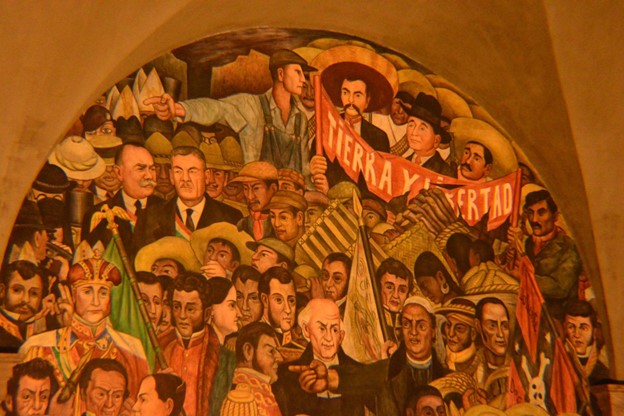
SPAN 384/LITS 397 Latin America’s Revolutionary Century
在
Cinema
SPAN 372/LITS Documentary Resistance in Latin America and Spain
One unit semester course. What makes a documentary a form of resistance? What defines this genre or mode? What elements and techniques characterize these documentary films? The course focuses on documentary films from Latin America and Spain that represent struggles for social justice and function as a cultural form of protest and resistance. By discussing the films in their historical and political contexts, the course examines the strategies, genres, and techniques that filmmakers use to address and participate in social change, as well as ethical and aesthetic questions about representation and production. We will watch and discuss films by Patricio Guzmán (Chile), Fernando Solanas (Argentina), Mario Handler (Uruguay), Lourdes Portillo (Mexico), Claudia Llosa (Peru), and Xapo Ortega and Xavier Artigas (Spain), among others. Prerequisite for Spanish credit: Spanish 321 or consent of the instructor. Conference. Cross-listed as Literature 372.
SPAN 367: Law and Violence in Contemporary Peninsular Cinema
在

SPAN 371/LITS 371: Sensing Justice: Cinema and the Politics of the Senses
在
SPAN 376: Cinema and Human Rights
在
Visual Arts
SPAN 344 Visual Art in Spanish Baroque Literature
在
SPAN 375 Memory and Image in Latin American Literature and Art
在
Religion
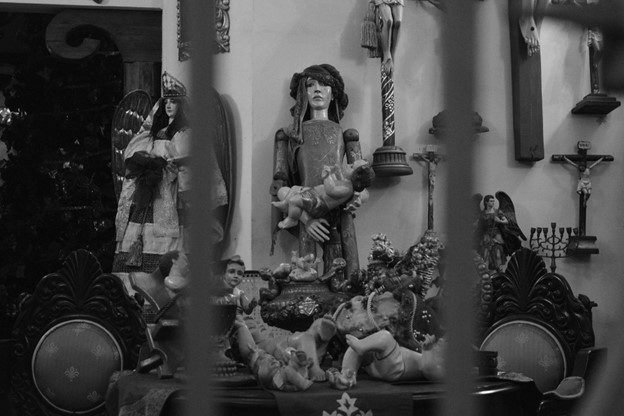 SPAN 351 Saints and Sinners: Women in the Early Modern Transatlantic World
SPAN 351 Saints and Sinners: Women in the Early Modern Transatlantic World
在
SPAN 373 Religion and Modernity in Latin American Culture
One unit semester course. In this course we will discuss figures and concepts from the major religious traditions of Latin America as they appear in short stories, novels, poetry, and drama from the twentieth century. We will consider the definition of modernity as a “disenchantment of the world,” and ask what that means in a region that through the present day boasts vibrant indigenous traditions and a strong Catholic presence with origins in colonialism. . The course will focus on the use of religious thought as a critical tool for examining social and political issues, such as racial and economic inequality, sectarian violence, and national identity. We will consider whether religion is a unique way of knowing, the influence of theology and belief on political systems, and what role literature has in redrawing the boundaries between politics, culture, and tradition. Conducted in Spanish. Prerequisite: Spanish 321 or consent of instructor. Conference.